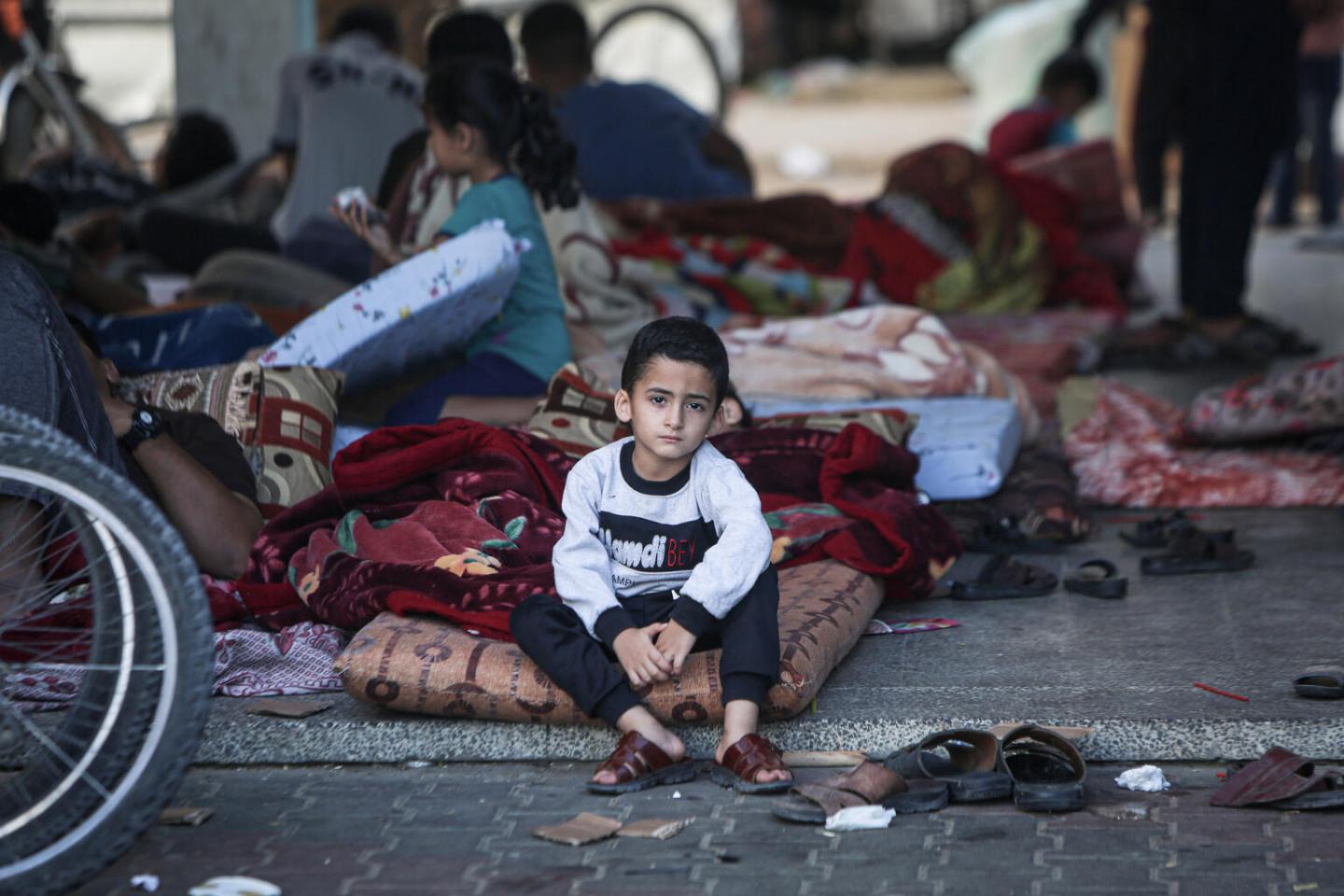

One phrase. One number. One photograph. Three elements — more than enough to trigger an international media firestorm and, at least temporarily, shape the global public discourse.
When Tom Fletcher, the UN’s Head of Humanitarian Affairs, stated in a live interview on BBC Radio 4 that “14,000 babies in Gaza could die within the next 48 hours”, news outlets around the world responded predictably — with siren headlines and harrowing imagery.
But behind the drama of that headline, how much accuracy — and how much exaggeration — lies beneath?
Even the BBC, which hosted Fletcher’s statement, eventually felt compelled to scrutinize the number that overnight became a symbol of a devastating humanitarian crisis.
What the official data actually shows
Let’s begin with what is indisputable: Gaza is facing a profound humanitarian emergency.
According to the IPC (Integrated Food Security Phase Classification) — a globally recognized, independent authority on food insecurity — an estimated 71,000 children under the age of five in Gaza are projected to suffer from acute malnutrition over the next 11 months.
This is the scientific basis: a forecast, not an imminent death toll. It is a year-long projection of potential outcomes — not a prediction of mass fatality within 48 hours.
Where did “14,000 in 48 hours” come from?
During his appearance on the BBC, Fletcher stated verbatim that “14,000 babies in Gaza could die within the next 48 hours if more aid does not arrive.”
But when the BBC sought documentation to support this claim, no clear source was provided. The only figure remotely matching was a reference to 14,000 severely malnourished infants in Gaza — cited by the IPC, but in an entirely different context.
UN spokesperson Jens Laerke later clarified that emergency supplies were urgently needed to save approximately 14,000 children suffering from severe acute malnutrition, and that ideally, such supplies should arrive “within the next 48 hours.”
In other words, the 48-hour timeframe referred to the logistical urgency of aid delivery — not a countdown to certain death.
The power of images and the role of the media
In times of humanitarian crisis, journalistic responsibility is paramount.
When NBC reported Fletcher’s claim, it chose to reinforce the narrative with a photo of a severely emaciated child — a powerful but ethically fraught visual that amplified the sense of alarm. While emotionally impactful, such editorial decisions raise valid concerns about emotional manipulation and visual sensationalism.
The blurring of lines between projection and reality, between call to action and catastrophic certainty, lies at the heart of misleading narratives.
A crisis, yes — but accuracy matters
The need for humanitarian aid in Gaza is unquestionably urgent. But when numbers are circulated without critical context, it risks undermining institutional credibility and eroding the boundary between warning and propaganda.
As the BBC itself later acknowledged in a follow-up report grounded in verification and nuance, journalism must not rely on misquoted or oversimplified data — especially when the stakes are life and death.
Σχετικά Νέα
 When Aegean Airlines Forgot Human Dignity: Mother with Multiple Sclerosis Denied Boarding
When Aegean Airlines Forgot Human Dignity: Mother with Multiple Sclerosis Denied BoardingWhat was meant to be a routine return flight became a distressing and deeply.
 Christos Marafatsos: His Role in Strengthening Greek-American Relations
Christos Marafatsos: His Role in Strengthening Greek-American RelationsChristos Marafatsos, a Greek-American businessman, has significantly raised his profile within the Greek-American community.
 Turks are buying up Thrace and the islands – A silent settlement via real estate
Turks are buying up Thrace and the islands – A silent settlement via real estateProperties priced between €5,000 and €20,000 are being massively sold to Turkish, Bulgarian, and.
 The utopia of a common European Security
The utopia of a common European SecurityThe new US administration has, as expected, brought upheavals on the international political scene.


